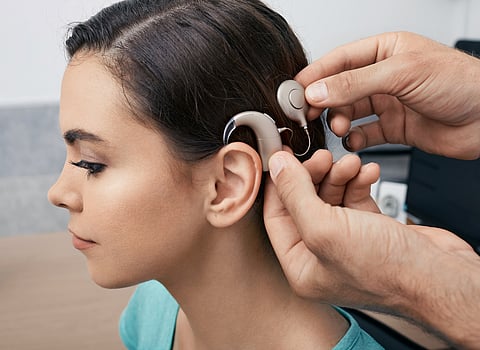TUESDAY, June 4, 2024 (HealthDay News) -- Cochlear implantation (CI) positively impacts hearing, vertigo, tinnitus, and quality of life in patients with Meniere disease (MD), according to a study published online May 20 in European Archives of Oto-Rhino-Laryngology.
Miray-Su Yılmaz Topçuoğlu, Dr. Med., from the University Hospital Heidelberg in Germany, and colleagues investigated the impact of CI in patients with MD. The analysis included 11 ears from individuals with MD receiving CI between 2014 and 2022.
The researchers found that following implantation, there was a significant enhancement in Word Recognition Scores at sound levels of 65 dB and 80 dB versus before treatment (preoperatively versus 12 months postoperatively). No significant enhancement was seen for 50 dB. There were significant MD-related impairment improvements postoperatively, as measured by the visual analogue scale, Dizziness Handicap Inventory, Tinnitus Handicap Inventory, and Nijmegen Cochlear Implant Questionnaire. There were also significant improvements seen in the Functional Level Scale.
"In patients suffering from MD, the prioritized treatment goals include not only improved hearing but also the rehabilitation of vertigo and tinnitus, as well as the enhancement of quality of life," the authors write. "Due to the retrospective nature and small number of patients, not only in this study but also in other comparable studies, multicenter studies with a prospective study design should be carried out in the future."
Several authors disclosed ties to MED-EL and Cochlear.
Abstract/Full Text


